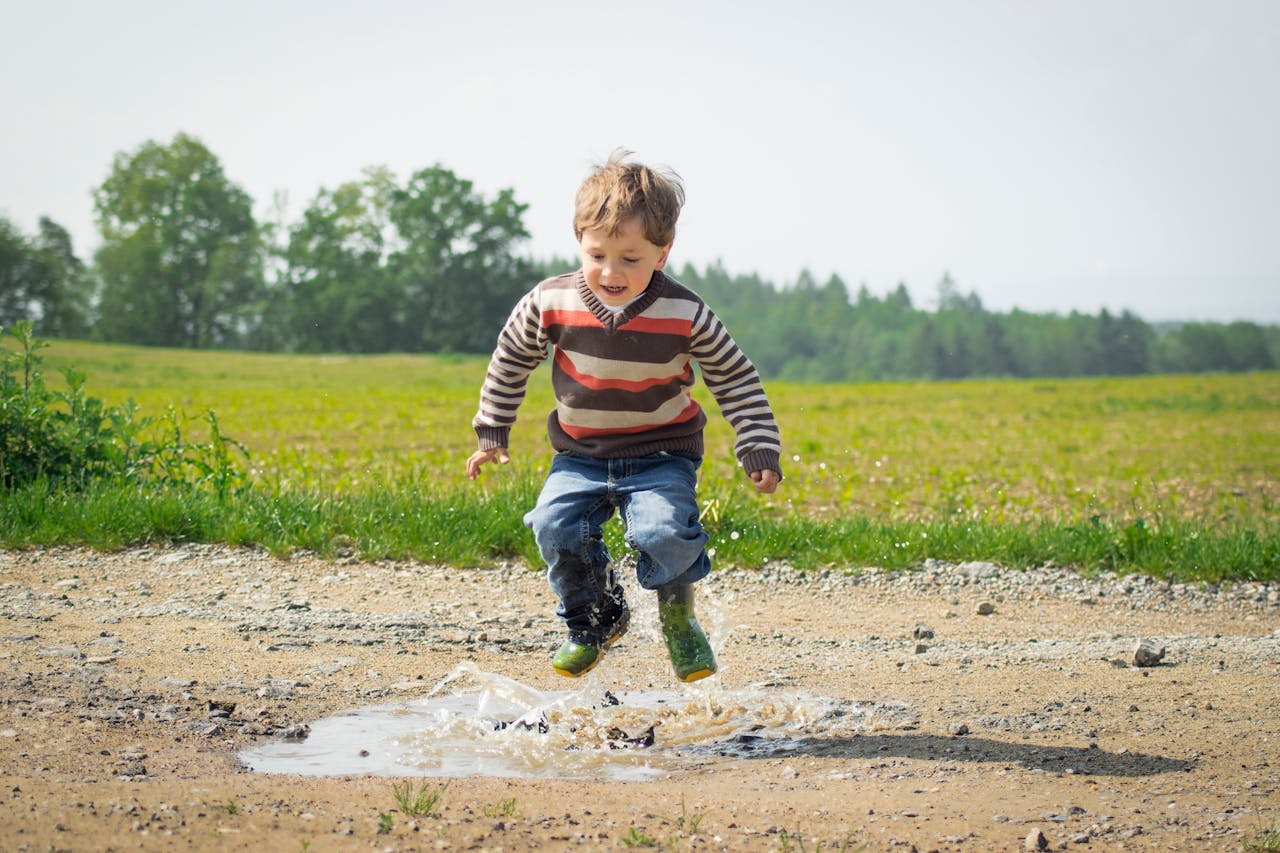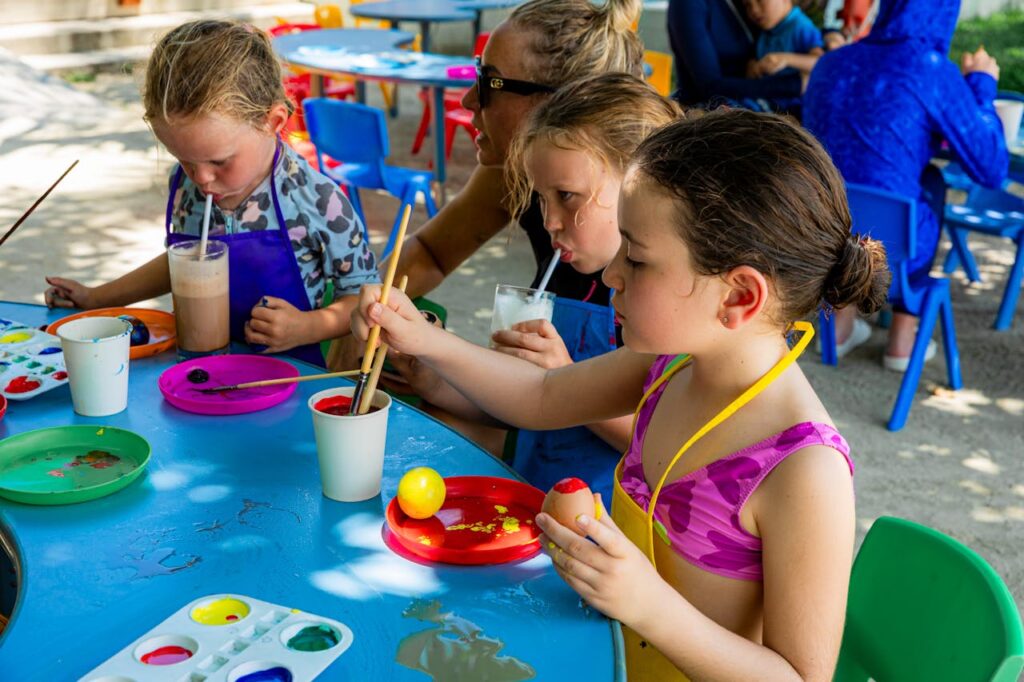
Body + Mind is reader-supported. We may earn an affiliate commission when you buy through some of the links on our site.
Play is more than just fun — it’s a child’s natural way of engaging with the world. As a parent, understanding how to support children’s learning through play is vital. To do that, it’s important to know that playing is in itself learning. Here’s why.

Children are hardwired for play. Neuroscience research has shown that in all mammals, including humans, play is one of seven emotional pathways inbuilt into the midbrain, where instinct and motivation arise.
As children interact with the world, this midbrain neural pathway is activated, creating a ripple effect across the developing brain. Learning through play creates new neural connections, wiring the brain for skills like problem-solving, memory, creativity, emotional regulation, resilience and language.
Over time, playing teaches kids how to take turns, negotiate and empathize with others. Through imaginative activities, they develop language, flexible thought patterns, decision-making and symbolic thinking. Together, these neural pathways build executive function, the brain’s self-management system, which is what allows humans to plan, organize, control their emotions, adapt to change and get things done.
Since play is so fundamental to cognitive and emotional growth, anything you can do to encourage healthy fun will help boost development. Here are eight ways to ensure your child is learning and growing.
Children need safe, accessible spaces where they feel free to explore, create and make a mess. You don’t need a large home or a designer space — just a small, dedicated area that invites curiosity. Offer a variety of sensory and tactile items like blocks, puppets, puzzles, crayons, fabric scraps, pinecones and pebbles.
Store toys and materials in clear bins or open baskets within reach so that your child can choose what to use independently. Rotate what’s available regularly to keep things fresh and exciting.
Structured play has its place and benefits. Card games, board games, sports or anything with rules help kids pick up social cues and learn patience, give-and-take and self-discipline. However, children also need time to “just play” without adult direction. Research shows that unstructured, free play enhances emotional control and boosts creativity and self-confidence.
Open-ended activities allow kids to set the rules and solve problems in real time. Items like bricks, blocks, costumes and cardboard boxes inspire imagination and offer limitless possibilities.
Discovering how to support children’s learning through play means being careful with toy choices. Avoid toys that do everything. These can limit creativity and reduce opportunities for decision-making. Instead, look for playthings that challenge youngsters to build, combine or reimagine.

Many daily routines are rich in learning through play opportunities. Cook with your child to help them learn math through measuring, sequencing, following recipes and understanding things like heat. Use bath time to explore concepts like floating and sinking or volume with cups and containers.
Shopping can also become a fun experience — ask your child to count items or compare prices. During walks, collect leaves or stones and sort them by shape or color. By turning everyday tasks into interactive moments of play, you will encourage lifelong curiosity.
Getting involved in your child’s games strengthens your bond and models behavior such as cooperation and curiosity. However, this doesn’t mean taking charge. Participate on their terms. Ask open-ended questions like, “What’s happening in your story?” or “How did you build that?”
It’s tempting to think that you should always be interacting, but independent play is important too. Younger children might always crave your attention, but by the age of 5, kids can typically play alone for 10 minutes at a time. Older ones can happily be alone for much longer than that, so do not feel that you should always be involved.
Outdoor environments offer a vast range of stimuli and challenges that indoor settings can’t replicate. Climbing, digging, running and observing wildlife build motor skills, spatial awareness and scientific curiosity. Research suggests that time spent outdoors improves focus and concentration, boosts imagination and decreases anxiety. Nature also offers ever-changing materials, like sticks, leaves and rocks, that encourage open-ended exploration.
Spend time in your backyard, local park, playgrounds and nature trails. Apart from opportunities for learning through play, it’s also great exercise. Research shows that being in nature has a whole host of health benefits. It can even boost the immune system through the inhalation of phytoncides, beneficial chemicals that plants produce. Best of all, it’s mostly free, and a perfect antidote to indoor blues.
All kids need to learn to negotiate, share and manage conflict, and social contact is vital for this. Organize playdates or small group activities. If your child struggles with social interaction, support them with gentle guidance. Before meeting friends, talk about what to expect and how to handle disagreements. Afterward, reflect on it together. These conversations help children process social dynamics and will build confidence for future interactions.
While some screen-based games or educational apps can support learning, passive or excessive use takes up time that could be better spent on active play. The American Academy of Child and Adolescent Psychiatry recommends that noneducational screen time for ages 2 to 5 be limited to no more than one hour per weekday or three hours on weekend days.
Beyond age 5, however, evidence suggests that the quality of screen time is more important than the length of time spent on it. Use screens intentionally. Co-view content and discuss it afterward. Make sure that screens don’t replace physical movement, social contact or hands-on activities, and establish screen-free routines such as tech-free meals or outdoor time after school.

Boredom is not necessarily a bad thing! Resist the temptation to fill your child’s day. When left to their own devices, kids engage their imagination, set their own goals and develop persistence.
If your youngster complains about being bored, it might help to write a short list of boredom-busting ideas to pin up on the fridge — but avoid intervening or feeling that you must entertain them. Brief periods of boredom encourage children to develop independence, planning skills, flexibility and responsibility for their own time.
Play is not optional — it is essential. It supports learning in profound ways, laying the groundwork for academic success, emotional resilience and strong relationships. Figuring out how to support children’s learning through play is largely instinctive for many parents, but these key tips will help you prioritize fun learning every day. Make time for play and watch your child flourish.
Your email address will only be used to send you our newsletter, and at any time you may unsubscribe. For more information, see our Privacy Policy.